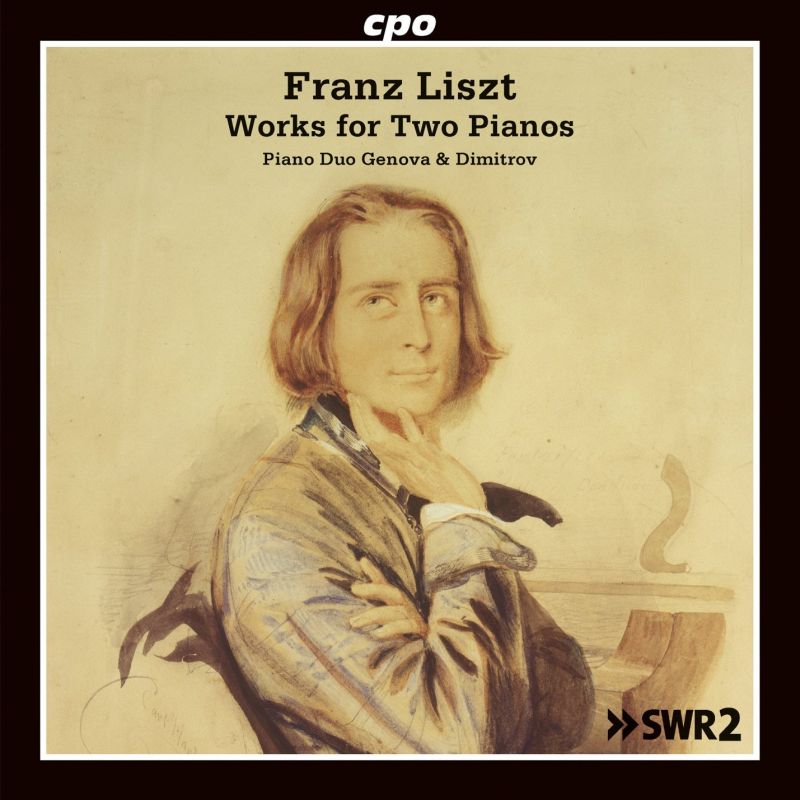LISZT Works for Two Pianos
View record and artist detailsRecord and Artist Details
Composer or Director: Franz Liszt
Genre:
Chamber
Label: CPO
Magazine Review Date: 07/2015
Media Format: CD or Download
Media Runtime: 72
Mastering:
DDD
Catalogue Number: CPO777 896-2

Tracks:
| Composition | Artist Credit |
|---|---|
| Grand Concert Piece, after Mendelssohn's 'Songs Without Words |
Franz Liszt, Composer
Duo Genova & Dimitrov Franz Liszt, Composer |
| Réminiscenes de Norma (Bellini) |
Franz Liszt, Composer
Duo Genova & Dimitrov Franz Liszt, Composer |
| Concerto pathétique |
Franz Liszt, Composer
Duo Genova & Dimitrov Franz Liszt, Composer |
| Réminiscences de Don Juan |
Franz Liszt, Composer
Duo Genova & Dimitrov Franz Liszt, Composer |
| Hexaméron |
Franz Liszt, Composer
Duo Genova & Dimitrov Franz Liszt, Composer |
Author: Jeremy Nicholas
The duo’s programme makes us, not for the first time, gawp in wonderment at Liszt’s industry. Here are but five of his works for two pianos, four of them (sometimes substantial) reworkings of earlier solo works, each page of every score black with notes. The most interesting, in one sense, is the Grand Concert Piece on Mendelssohn’s Songs Without Words, the only piece here that has no equivalent solo version. It was written in 1834 but not given its premiere until 1984 (Richard and John Contiguglia). A flamboyant introduction leads to three linked treatments of Mendelssohn’s Op 19 Nos 1, 6 (the famous ‘Venetian Gondola’) and 3 (‘Hunting Song’), transforming their intimate originals into a fast-slow-fast mini-concerto. We should hear it more often. The duo play it with exactly the right exuberance and with flawless ensemble.
The same is true of the Concerto pathétique (a sort of rehearsal for the great B minor Sonata, with which it shares similar material) and the other more familiar works. With its significant divergences from the solo version, despite the redistribution of material, Liszt lets neither pianist off the hook in the Réminiscences de Don Juan, though the final pages lack the spine tingle generated inherently by the heroic solo version. The late (1870) two-piano heavily abridged version of Hexaméron is a curiosity but not a patch on the 1838 original, especially when Liszt includes only three of the variations (Thalberg’s, Czerny’s and his own): Hexaméron turned Ternion, you might say.
Discover the world's largest classical music catalogue with Presto Music.

Gramophone Digital Club
- Digital Edition
- Digital Archive
- Reviews Database
- Full website access
From £8.75 / month
Subscribe
Gramophone Full Club
- Print Edition
- Digital Edition
- Digital Archive
- Reviews Database
- Full website access
From £11.00 / month
Subscribe
If you are a library, university or other organisation that would be interested in an institutional subscription to Gramophone please click here for further information.




